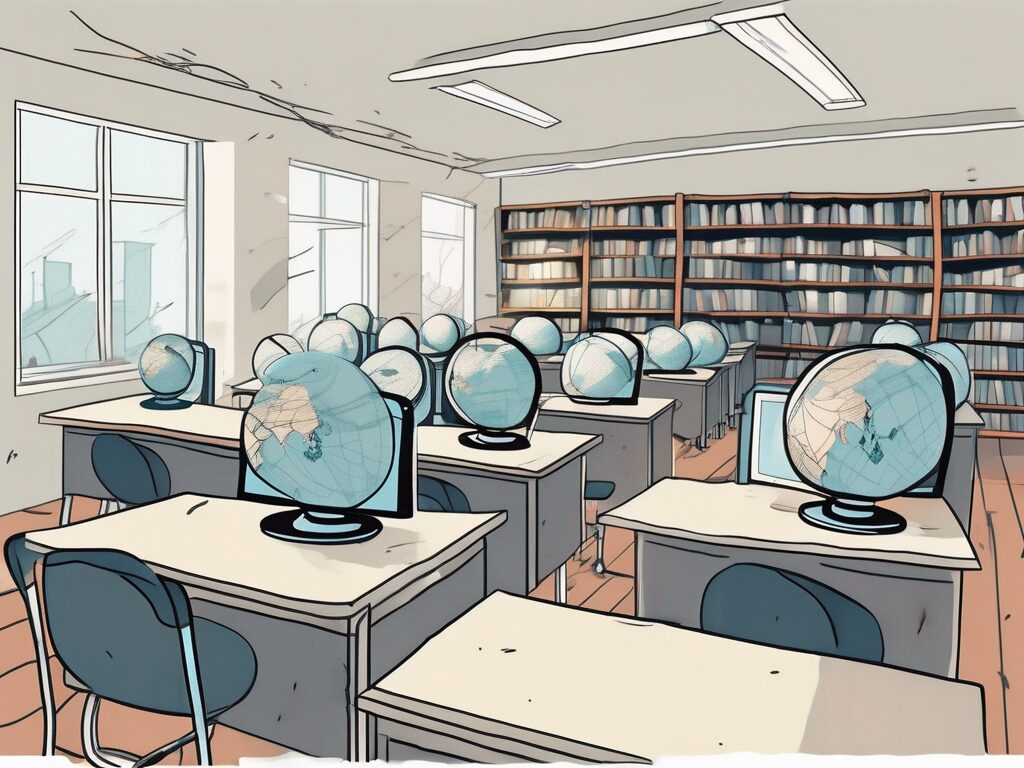South Korea’s Education Challenges to Watch in 2025: Key Insights
South Korea’s education system is frequently recognized for its exceptional academic performance, with students achieving high rankings in global assessments. However, a closer examination reveals a range of challenges that the system must confront. These include a high-stress environment, an overreliance on rote learning, and significant disparities caused by private education. This guide aims to provide education consultants with critical insights into these challenges, facilitating informed decisions for international teachers navigating this complex landscape.
High-Stress Environment
A predominant challenge within South Korea’s education system is the pervasive high-stress environment. The competitive nature of the educational framework places immense pressure on students, as their academic achievements are closely tied to their future opportunities. The College Scholastic Ability Test (CSAT), a pivotal standardized examination for university admissions, exemplifies this stress. Students often dedicate years to prepare for this singular event, which is treated as a national occasion, with businesses adjusting their schedules to minimize disruptions.
Implications for Mental Health
The high-stress conditions prevalent in South Korea’s education system have profound implications for students’ mental health. A survey conducted by the Korean Educational Development Institute indicates that over 50% of South Korean adolescents report experiencing depressive symptoms, with approximately 25% contemplating suicide. This alarming statistic underscores the urgent need for mental health support within educational institutions. Furthermore, the intense focus on academic performance often precludes students from engaging in extracurricular activities that promote mental well-being, such as sports and arts, exacerbating feelings of isolation and stress.
Overemphasis on Rote Learning
Another critical issue within South Korea’s education system is the overemphasis on rote learning. This pedagogical approach prioritizes memorization over comprehension, resulting in high scores on standardized tests but insufficient development of critical thinking and creativity. For instance, English language instruction often focuses heavily on grammar and vocabulary memorization, rather than fostering practical communication skills, contrasting sharply with educational practices in countries such as the United States and the United Kingdom.
Creativity and Critical Thinking Deficits
The reliance on rote learning contributes to a notable deficiency in creativity and critical thinking among students. These skills are increasingly vital in today’s workforce, where adaptability and innovation are paramount. In contrast, educational systems in countries like Finland emphasize the cultivation of these competencies, preparing students for a diverse array of career paths. The lack of creative engagement in the classroom can lead to diminished interest in learning, fostering a negative attitude that may persist into adulthood.
Private Education and Inequality
The prevalence of private education, particularly through ‘hagwons’ (private tutoring institutions), presents another significant challenge in South Korea’s educational landscape. Many parents feel compelled to invest in private tutoring to enhance their children’s academic prospects, creating a substantial financial burden and exacerbating educational inequality. Students from affluent backgrounds often gain a competitive advantage, leading to a system where financial resources, rather than merit, dictate academic success.
Financial Implications for Families
The financial strain associated with private education can be considerable, with many families allocating a significant portion of their income to their children’s academic pursuits. This financial pressure can lead to stress and even debt, contrasting sharply with countries like Sweden, where education is provided free of charge at all levels. Additionally, the high costs of private education may discourage families from having multiple children, contributing to South Korea’s declining birth rate and raising concerns about the future workforce and economic stability.
Conclusion
While South Korea’s education system has achieved remarkable academic outcomes, it is imperative to address the underlying challenges that threaten its effectiveness. The high-stress environment, reliance on rote learning, and inequalities stemming from private education significantly impact students’ well-being and overall educational quality. By recognizing and addressing these issues, South Korea has the potential to develop an education system that not only excels academically but also nurtures a passion for learning, promotes mental health, and ensures equitable opportunities for all students. As international educators consider their roles within this context, it is essential to remain informed and proactive in advocating for systemic improvements.
Enhance Your Teaching Career with iPGCE
As South Korea navigates the complexities of its education system, the demand for qualified and adaptable educators is paramount. For educators seeking to elevate their qualifications and meet the rigorous standards of international schools, the International Postgraduate Certificate in Education (iPGCE) offers a pathway to success. Join a network of professionals who have experienced a 50% increase in interview callbacks, a 45% rise in promotion rates, and a 30% salary enhancement. Engage with a global community, gain insights into international curricula, and balance professional development with teaching commitments. Take the first step towards transforming your career and contributing to the future of education by enrolling in the UK’s #1 Teacher Training Course today.

